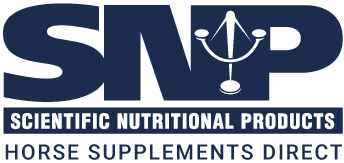All horse owners are anxious about their equines becoming ill, and colic is one of the most troubling conditions for anyone that cares for horses and ponies. Colic, defined as abdominal pain, affects between four and ten percent of horses during their lifetime. It is a serious and sometimes life-threatening condition, according to a recent article on ‘Acta Veterinaria Scandinavica’, an open access journal encompassing veterinary research. (Link provided below).
The journal acknowledged that many horse owners and equine veterinarians find themselves facing a difficult decision when it comes to treating a horse surgically for colic, with concerns including postoperative performance and expense; but reported that a recently published study funded by Morris Animal Foundation shows that colic surgery actually results in overwhelmingly positive outcomes for both horses and owners.
"Many horses encounter colic at some point of their life and, fortunately, many of the episodes can be treated conservatively with medication and fluids," said Dr. Isa Immonen of the University of Helsinki, one of the paper's authors. "Sometimes however, the horse requires surgical treatment, which is expensive and a major operation for the horse. This may be a difficult life-and-death decision for the owner."
Study researchers looked at the long-term outcomes of 236 horses undergoing surgery for colic. The team found that, of the horses that survived to hospital discharge, 83.7 percent returned to their previous or intended activity, and 78.5 percent regained their pre-surgical or higher level of performance. (Read more HERE).
With most equine colic cases associated with colonic disturbances, here are our top tips for preventing its occurrence, by Scientific Nutritional Products’ Peter Fishpool:
- Manage the horse’s diet carefully – sudden changes in the type of feed given, as well as the routine (for example if a horse stays away at a show) can play a part in triggering colic episodes. Make sure increases/decreases in the amount of feed are made gradually.
- Horses that crib-bite or windsuck are at a greatly increased risk of gastrointestinal dysfunction, so make sure you are aware of the management involved when buying a horse with these forms of stereotypic behaviours.
- Ensure your worming control measures are up to date - diagnostic testing is widely advocated to help assess which parasites are present, and to identify which horses are infected.
- Ask your Equine Dental Technician or vet to perform dental checks regularly - every 12 months is generally recommended, depending on your horse’s age and health status.
- Take extra care with older horse’s diets and dental care – horses over the age of 20 have a higher chance of colic than their younger counterparts.
- Ensure your horse’s diet contains all the required relevant vitamins and minerals, to maintain overall health and wellness.
- Feeding a horse 'prone' to colic a PreBiotic and a horse ProBiotic is a good way to help maintain a healthy gut and help minimise the risk of future colics. Nutri-Gut supports good gastric health and reduces the risk of digestive problems.
Scientific Nutritional Products also offers a range of supplementary feed products for equines and dogs promoting good health. They offer a high spec affordable Horse and Pony multi vitamin supplement which will compliment your feeding plan.
To receive one-to-one advice please contact our nutritional specialists on FREEPHONE 0800 032 7774 or Tel: 01377 254900.
We love sharing our expertise - to see a range of horsey articles videos and reviews concerning lots of other equestrian and countryside matters, visit Horse and Countryside Online.


